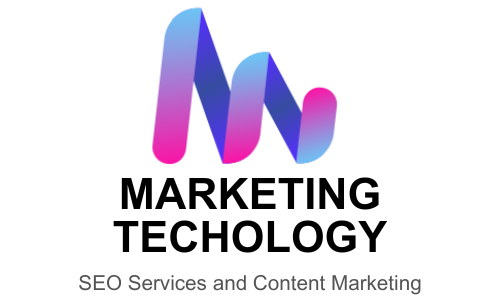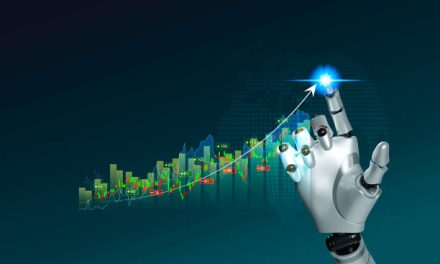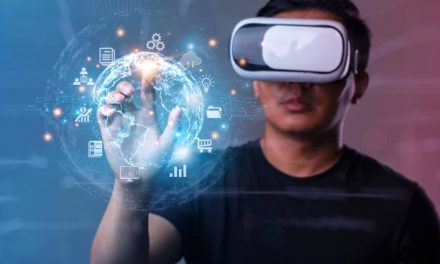In the ever-evolving landscape of digital marketing, artificial intelligence (AI) has emerged as a game-changing technology that significantly enhances how businesses connect with their customers. With the advent of big data and advanced analytics, AI has transformed traditional marketing strategies, enabling marketers to make data-driven decisions that optimize their campaigns for better performance and increased customer engagement. The role of AI in marketing extends beyond simple automation; it encompasses a wide range of applications that enhance personalization, streamline operations, and ultimately drive revenue growth. This article explores what is the role of AI in marketing, emphasizing its importance in today’s digital marketplace and how it shapes the future of marketing.
Understanding AI in Marketing
At its core, artificial intelligence refers to the simulation of human intelligence in machines that are programmed to think and learn like humans. In marketing, AI is utilized through various technologies, including machine learning, natural language processing, and predictive analytics. Understanding AI in marketing means recognizing its potential to analyze large volumes of data, identify trends, and learn from customer interactions.
Machine learning, for instance, allows algorithms to improve automatically through experience. This means that as more data is fed into the system, it can become more accurate in predicting consumer behavior and preferences. Natural language processing enables machines to understand and respond to human language, making it possible to analyze customer feedback, social media interactions, and online reviews. Together, these technologies form the backbone of AI applications in marketing, enabling brands to connect with their audiences in more meaningful ways.
The Role of Artificial Intelligence in Marketing
The role of artificial intelligence in marketing is extensive and continually expanding as technology advances. Here are several key areas where AI significantly impacts marketing practices:
1. Customer Segmentation
One of the primary roles of AI in marketing is in customer segmentation. Traditional segmentation methods often rely on demographic data and broad categorizations, which can overlook significant variations within target audiences. AI changes this by leveraging vast amounts of data, including purchase history, online behavior, and even social media interactions, to identify distinct segments within the customer base.
Through machine learning algorithms, businesses can create detailed customer profiles that reflect specific interests, needs, and behaviors. For instance, an e-commerce company might use AI to analyze past purchases and browsing habits to segment customers into groups such as frequent buyers, occasional browsers, and potential defectors. This refined segmentation allows marketers to develop targeted campaigns that resonate with each segment, increasing the likelihood of engagement and conversion.
2. Personalization
In an age where consumers expect personalized experiences, AI plays a crucial role in delivering tailored content and recommendations. By analyzing individual customer data, AI can predict preferences and suggest products or services that align with their interests. For example, streaming services like Netflix and music platforms like Spotify utilize AI algorithms to recommend shows, movies, or songs based on user behavior and preferences.
This level of personalization enhances the customer experience, fostering loyalty and increasing the chances of repeat business. Businesses that invest in AI-driven personalization strategies often see higher engagement rates and improved customer satisfaction. Moreover, AI can automate the personalization process, allowing marketers to scale their efforts efficiently without sacrificing quality.
3. Content Creation

Content marketing is a vital component of any successful marketing strategy, and AI is increasingly being used to enhance this process. From generating ideas to drafting articles and even creating visuals, AI tools are streamlining content creation. Natural language generation (NLG) technology enables AI to produce written content based on specific data inputs, creating articles, reports, or social media posts quickly and efficiently.
Additionally, AI can analyze trending topics and consumer interests, providing marketers with insights into what content will resonate with their audience. By leveraging AI in content creation, businesses can save time and resources while ensuring their messaging remains relevant and engaging.
4. Customer Service Automation
Chatbots and virtual assistants powered by AI are revolutionizing customer service in marketing. These intelligent systems can handle a variety of inquiries, providing instant responses to common questions and guiding customers through their purchase journey. Chatbots utilize natural language processing to understand customer queries and respond in a conversational manner, enhancing the overall customer experience.
By automating routine interactions, businesses can improve response times and maintain high levels of customer satisfaction. Furthermore, AI-powered chatbots can learn from past interactions, continually improving their ability to assist customers. This not only reduces the burden on human customer service representatives but also allows them to focus on more complex issues that require a personal touch.
5. Predictive Analytics
Predictive analytics is another area where the role of artificial intelligence in marketing shines. By analyzing historical data, AI algorithms can identify patterns and trends that help businesses forecast future consumer behaviors and market demands. This capability is invaluable for marketers looking to optimize their strategies and allocate resources effectively.
For instance, a retail business might use predictive analytics to determine which products are likely to be popular during specific seasons, allowing them to adjust their inventory and marketing strategies accordingly. Additionally, predictive analytics can help businesses identify potential churn risks among customers, enabling them to implement retention strategies before losing valuable clients.
6. Enhanced Decision-Making

AI is also enhancing decision-making processes within marketing departments. With its ability to analyze data at unprecedented speeds, AI provides insights that enable marketers to make informed decisions quickly. For instance, AI can assess the effectiveness of various marketing campaigns in real-time, allowing businesses to pivot strategies if certain approaches are not yielding desired results.
Moreover, AI tools can simulate different marketing scenarios, providing predictive insights into how various strategies might perform. This capability empowers marketers to optimize their campaigns based on data-driven evidence rather than relying solely on intuition or historical data.
The Future of AI in Marketing
The future of AI in marketing is promising, with ongoing advancements set to revolutionize the industry further. As AI technologies continue to evolve, we can expect even greater capabilities that will enable marketers to enhance customer experiences and drive business growth.
One significant trend is the integration of AI with other emerging technologies, such as augmented reality (AR) and virtual reality (VR). These combinations will allow for immersive marketing experiences that engage consumers in new and exciting ways. For example, AR can be used in retail to let customers visualize products in their own environment before making a purchase, with AI providing personalized recommendations based on their preferences.
Additionally, as ethical considerations surrounding AI use become more prominent, there will be a push for transparency and responsible AI practices in marketing. Businesses will need to navigate the balance between personalization and privacy, ensuring that customer data is used ethically while still delivering personalized experiences.
Conclusion
In conclusion, the role of artificial intelligence in marketing is transformative, providing businesses with innovative tools and strategies to connect with consumers more effectively. From enhancing customer segmentation and personalization to streamlining content creation and customer service, AI empowers marketers to operate more efficiently and make data-driven decisions that lead to improved outcomes. As we look to the future, the potential for AI in marketing continues to expand, promising even more opportunities for innovation and growth. For businesses seeking to navigate this evolving landscape, partnering with experts like Marketing Techology, which offers SEO services and content marketing, can provide the necessary support to leverage AI’s capabilities effectively.
Frequently Asked Questions
How does AI help in customer segmentation?
AI helps in customer segmentation by analyzing vast datasets to identify patterns and characteristics that define different customer groups. By processing demographic information, purchase history, and behavioral data, AI algorithms can segment customers into distinct categories, allowing marketers to tailor their strategies and messages for each group effectively.
How does AI improve content creation?
AI improves content creation by automating the writing process and suggesting relevant topics based on trending data and consumer preferences. AI tools can analyze what types of content perform best with specific audiences and generate high-quality drafts, enabling marketers to produce more effective and engaging content quickly.
How do chatbots work in marketing?
Chatbots work in marketing by using AI algorithms to understand and respond to customer inquiries in real-time. They can simulate conversations, answer frequently asked questions, and guide users through the purchasing process. By automating these interactions, chatbots improve customer engagement and satisfaction while freeing up human resources for more complex tasks.





